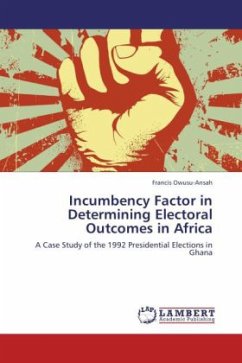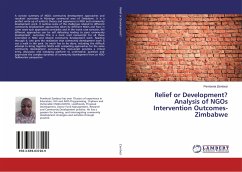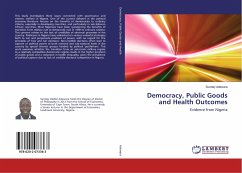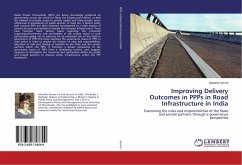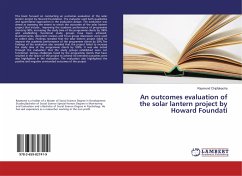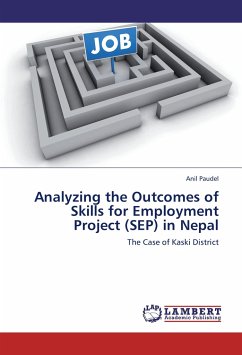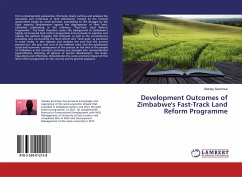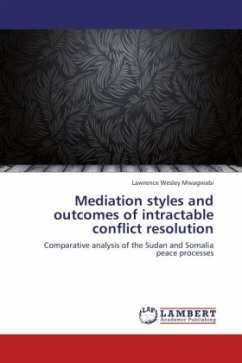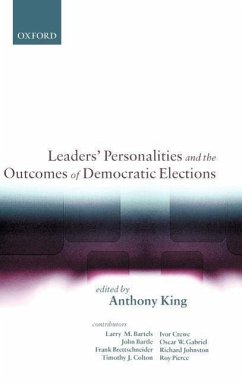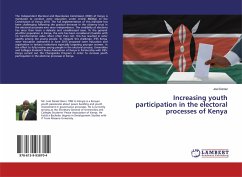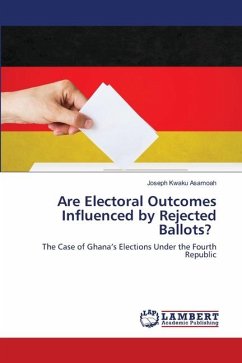
Are Electoral Outcomes Influenced by Rejected Ballots?
The Case of Ghana's Elections Under the Fourth Republic
Versandkostenfrei!
Versandfertig in 6-10 Tagen
29,99 €
inkl. MwSt.

PAYBACK Punkte
15 °P sammeln!
Elections have become the prerequisite of democratic governance in most countries. In pursuit of this democratic imperative, Ghana has conducted eight (8) successive elections since the inception of the Fourth Republic. In the quest to seek continuous improvement, the Election Management Body of Ghana has over the years implemented various policies to give citizens the right to vote to choose leaders. However, notwithstanding the relentless effort to improve the electoral process, the incidence of rejected ballots poses risk to the democratic value of elections. The quantum of rejected ballots...
Elections have become the prerequisite of democratic governance in most countries. In pursuit of this democratic imperative, Ghana has conducted eight (8) successive elections since the inception of the Fourth Republic. In the quest to seek continuous improvement, the Election Management Body of Ghana has over the years implemented various policies to give citizens the right to vote to choose leaders. However, notwithstanding the relentless effort to improve the electoral process, the incidence of rejected ballots poses risk to the democratic value of elections. The quantum of rejected ballots sometimes is enough to push the elections into a runoff. Apart from the financial and economic costs to the nation, runoff elections birthed by rejected ballots create tensions and anxiety with the tendency to threaten the peace and security of countries. Consequently, the main causes and effects of rejected ballots on the democratic value of elections have eluded the voting public. This study aims to evince the possible cause of rejected ballots and narrow the knowledge gap of its impact on Ghana's democracy by adopting descriptive analysis to assess the democratic peril of high incidence.





